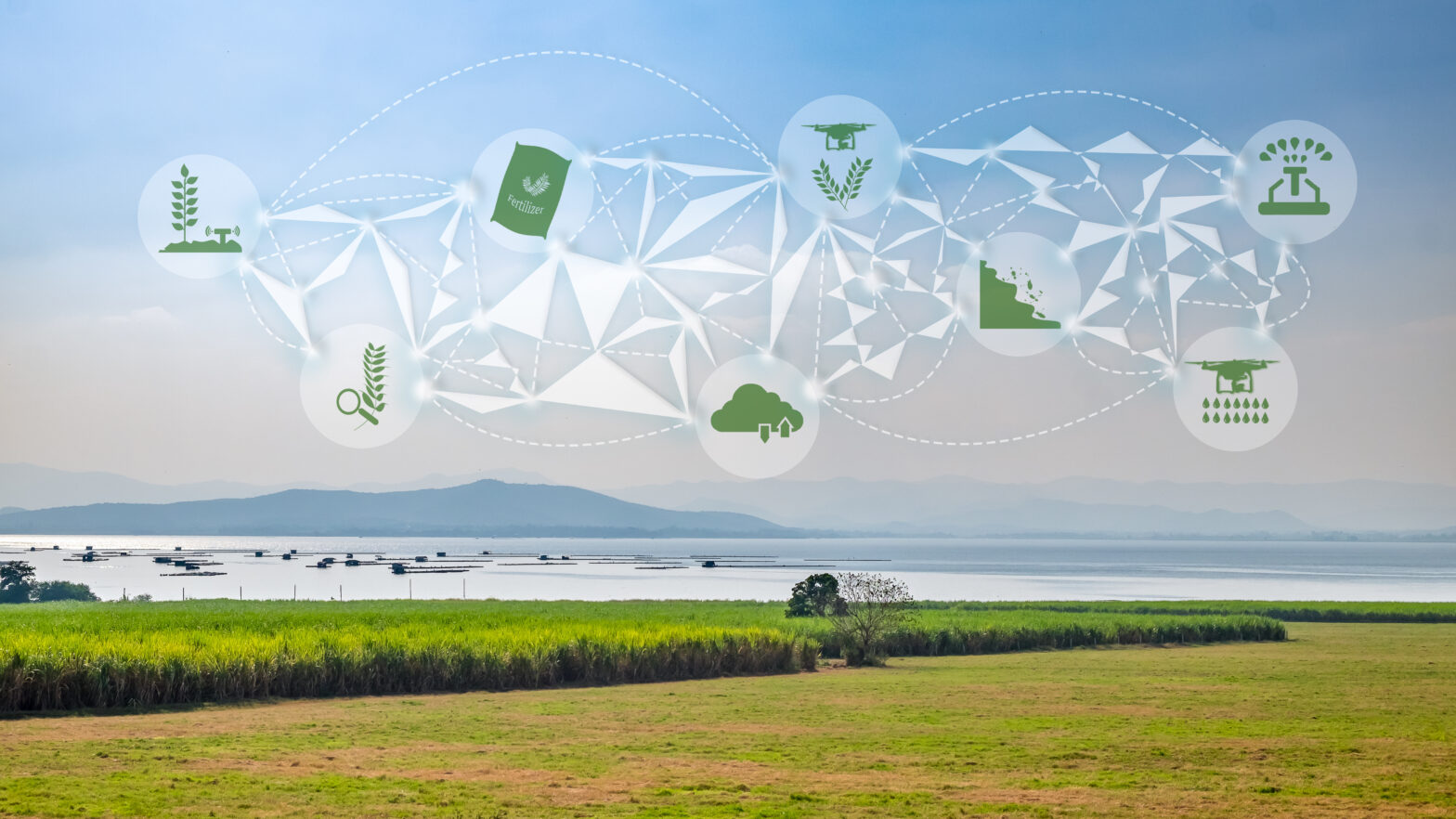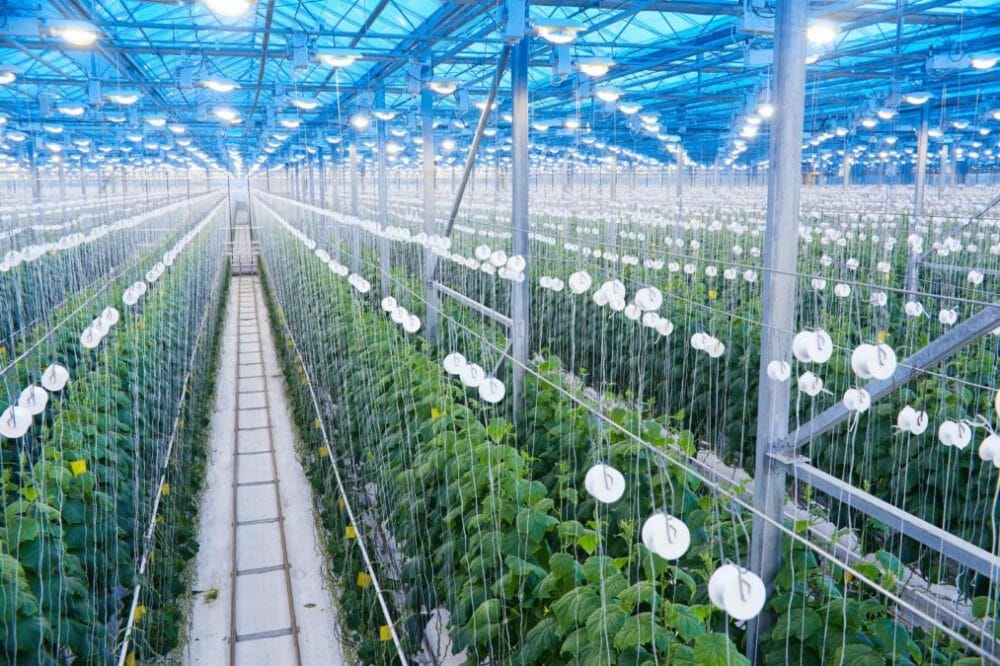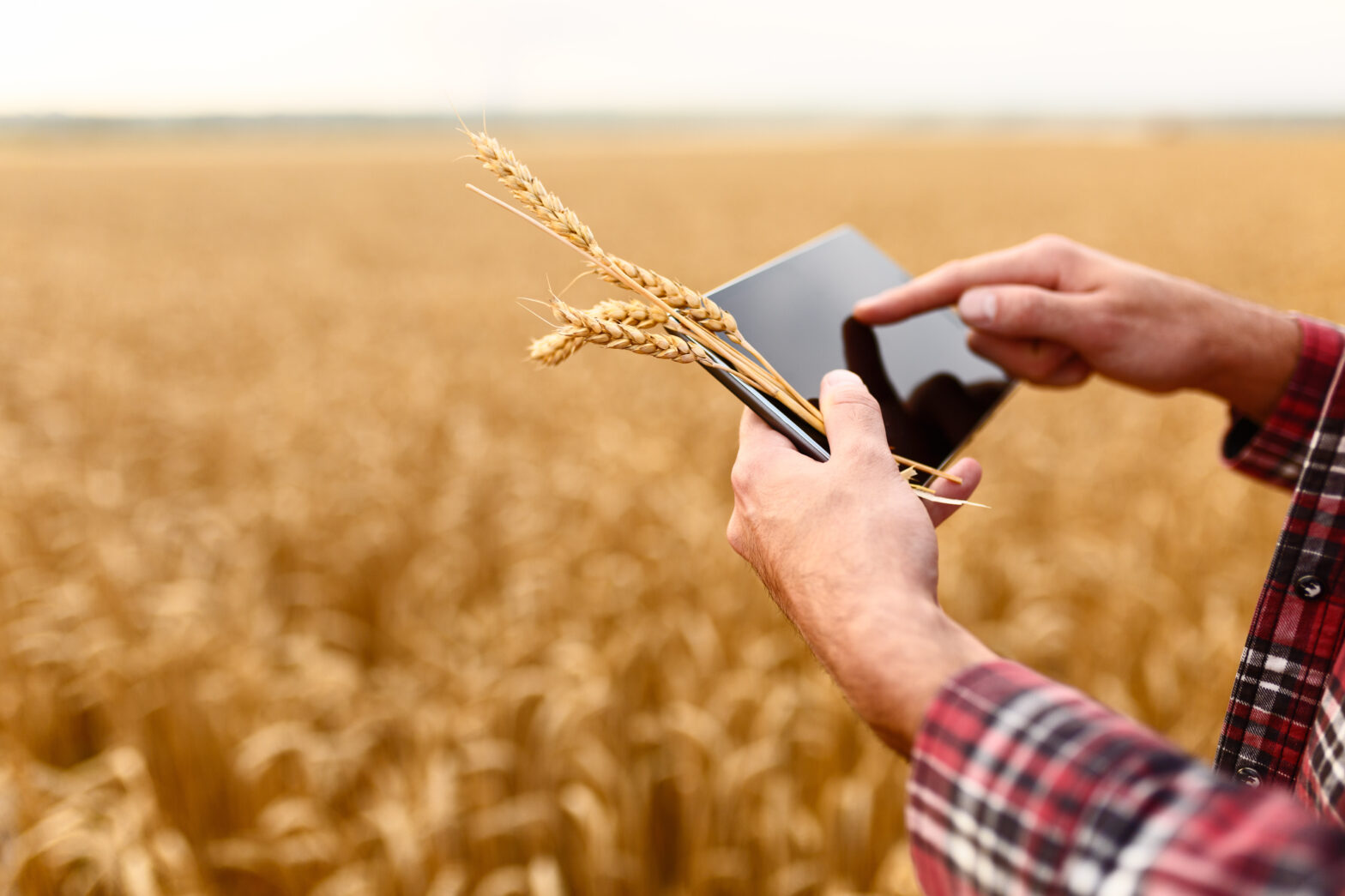With pressure on land and food resources set to increase, the Internet of Things (IoT) will play an increasingly important role in helping the agriculture sector become more efficient, productive and sustainable.
This is according to new independent research commissioned by global mobile satellite company Inmarsat, which found that spend on, and interest in, IoT is set to rocket over the next five years within agritech.
Market research specialist Vanson Bourne interviewed respondents from 100 large agritech companies across the globe for Inmarsat’s ‘The Future of IoT in Enterprise – 2017’ report, and found that the sector is rapidly taking to IoT technologies. 62% had already fully or partially deployed IoT-based solutions, far outweighing the adoption levels seen in the mining, transport and energy sectors, and a further 27% had plans to do so within the next six months.
>See also: ‘IoT is accelerating the globalisation of food production and processing’
Moreover, the spend on IoT-based solutions is set to increase dramatically over the next few years. Today, about 5% of agritech businesses’ IT budgets are spent on the technology; a figure that is expected to more than double to around 12% by 2022, indicating how important IoT will be for the sector going forward.
Commenting on the findings, Ayan Jobse-Alkemade, director of Sector Development Agriculture, Inmarsat Enterprise, said: “With the planet estimated to reach a population of 10 billion people by 2050, humanity will face challenges with sustainable water sources, food production, and the best use of land to get the maximum yield from crops.
Additionally, using the most efficient method to deliver the resources will increasingly feature on the global agenda. In short, farmers, with the help of the agritech sector, need to get smarter, leaner and faster from field to fork.
“The only way to really do this is with the clever application of new technologies like IoT, and our research demonstrates how quickly agritech businesses are embracing this technology. IoT will fuel a revolution in the farming sector and bring gains that completely eclipse those made in the first Green Revolution in the 1970s,” continued Jobse-Alkemade.
>See also: ‘IoT the top priority in driving digital transformation’
Working with its partners, Inmarsat is at the forefront of this movement, delivering effective solutions for agritech businesses globally. By combining its heritage in critical connectivity with LoRaWAN technology and data analytics platforms that allow for the free-flow of data across organisations, Inmarsat are helping to ensure agritech businesses get ahead of the competition and meet the food production needs of tomorrow.
Many of the locations that would benefit most from IoT technologies are remote and are situated where terrestrial networks do not reach, or do not work well, all of the time. Inmarsat’s L-band network provides global satellite connectivity with up to 99.9% uptime, allowing IoT projects to thrive, even in the most remote and hostile environments.






